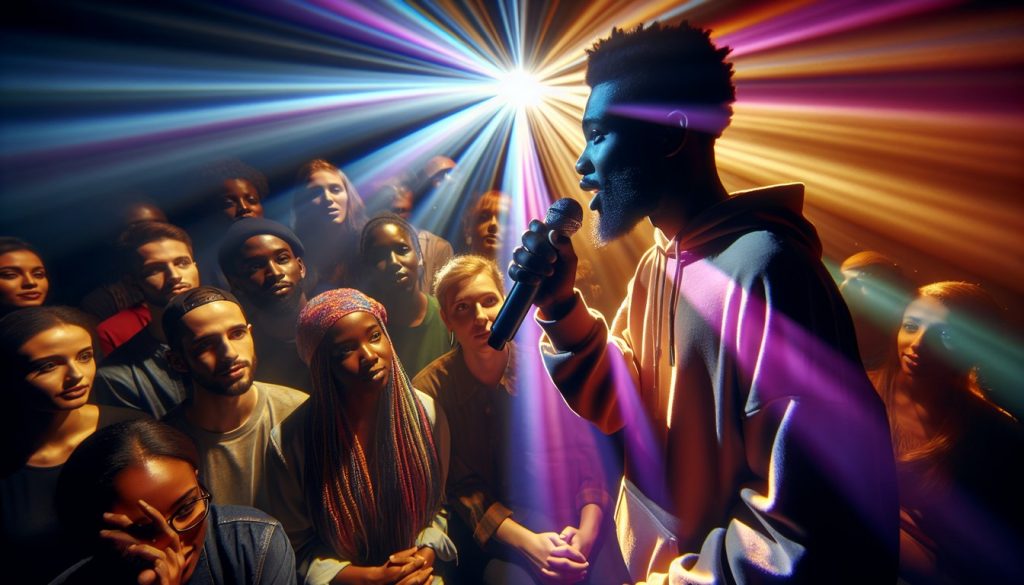
Rhymes and Healing: The Rise of Mental Health Awareness in Hip Hop Culture
In recent years, the realms of hip hop and mental health have intertwined in unprecedented ways, catalyzing a dynamic dialogue that challenges societal norms and empowers individuals to share their personal struggles and triumphs. This fusion not only elevates awareness but also dismantles the stigma surrounding mental health issues within the hip hop community. By reflecting on powerful narratives and lyrics, we can appreciate how the genre has evolved to become a beacon for healing and acceptance.
dialogue that challenges societal norms and empowers individuals to share their personal struggles and triumphs. This fusion not only elevates awareness but also dismantles the stigma surrounding mental health issues within the hip hop community. By reflecting on powerful narratives and lyrics, we can appreciate how the genre has evolved to become a beacon for healing and acceptance.
The Power of Lyrics: Breaking the Silence
Hip hop artists have long used their music as a platform to address societal issues, political issues, and mental health is no different. Legendary figures such as Kanye West and Kendrick Lamar have candidly discussed their personal battles, paving the way for open conversations about mental health. Their lyrics often mirror their emotions and experiences, offering fans a glimpse into their internal worlds. Recently, Ray J had a mental health crisis and had to call a mental health professional because of his suicide thoughts.
A lot of artists like Lauryn Hill, Big Sean, Travis Scott, Tyrese Gibson, Megan Thee Stallion, Krizz Kaliko, Kid Cudi, and Nicki Minaj have all expressed issues with their mental health. The music shows a deeper sign of pain then we really know about their illness.
Key Themes in Hip Hop Lyrics
- Anxiety and Depression: Artists openly express their struggles, breaking the silence and encouraging fans to seek help.
- Resilience and Recovery: Lyrics serve as a testament to overcoming obstacles and the journey towards mental wellness.
- Community and Support: Hip hop fosters a sense of belonging, creating a supportive community for those grappling with mental health issues.
Community and Advocacy: Hip Hop’s Role in Mental Health Awareness
The hip hop community has become a formidable advocate for mental health awareness, utilizing its influential platform to drive change. Initiatives such as The Hip Hop Mental Health Foundation offer resources and support to those in need, demonstrating the genre’s commitment to fostering mental wellness. These efforts not only illuminate the importance of mental health but also inspire a new generation of artists and fans to engage in the conversation.
Impactful Initiatives
- Educational Workshops: Programs designed to educate and empower youth, encouraging them to discuss mental health openly.
- Collaborative Projects: Artists team up with mental health organizations to create impactful content and events.
- Social Media Campaigns: Utilizing platforms to reach a wider audience, advocating for mental health awareness and support.
Conclusion
Mental health awareness in hip hop has grown over the years. Artists are bringing the need for discussion to light. The industry doesn’t support its artists’ mental health by providing support through counseling, therapy, and emotional support. Hip hop’s mental health is in a state of emergency, and we, the hip hop community, need to rally together to save our artists. Kanye West seems to have had several mental outbursts. But no one in his camp is addressing his needs on any level except through medication.
Hip hop culture’s self destructive nature is killing our young men and women. A lot of artists try to self-medicate through using rap lyrics as a form of holistic healing. It helps sometimes, but not always. The industry needs stronger advocates for artists and programs that will help to take the burden of stress and fame off the artists’ backs. We can only hope the future changes so that more men and women can live in harmony and balance.


